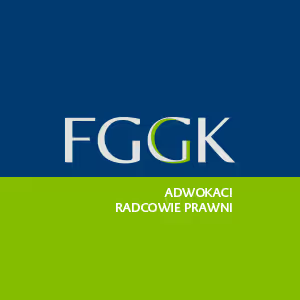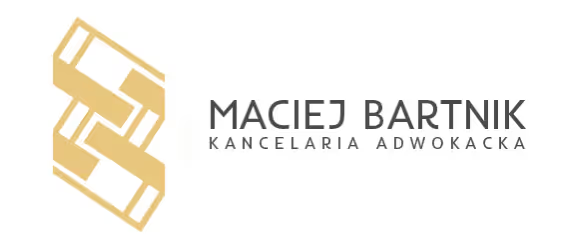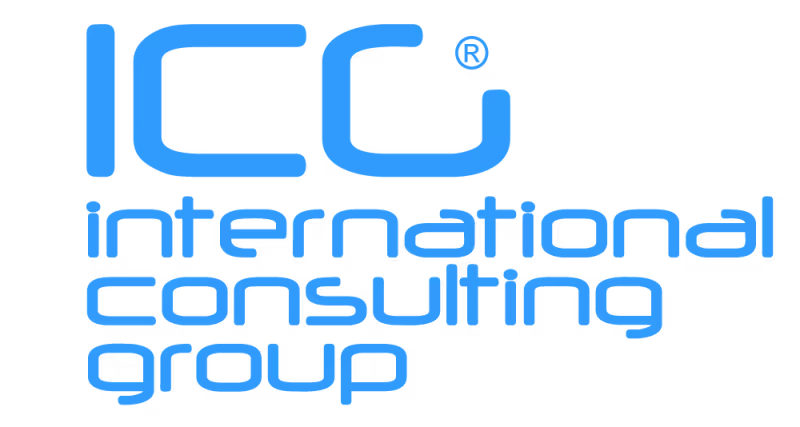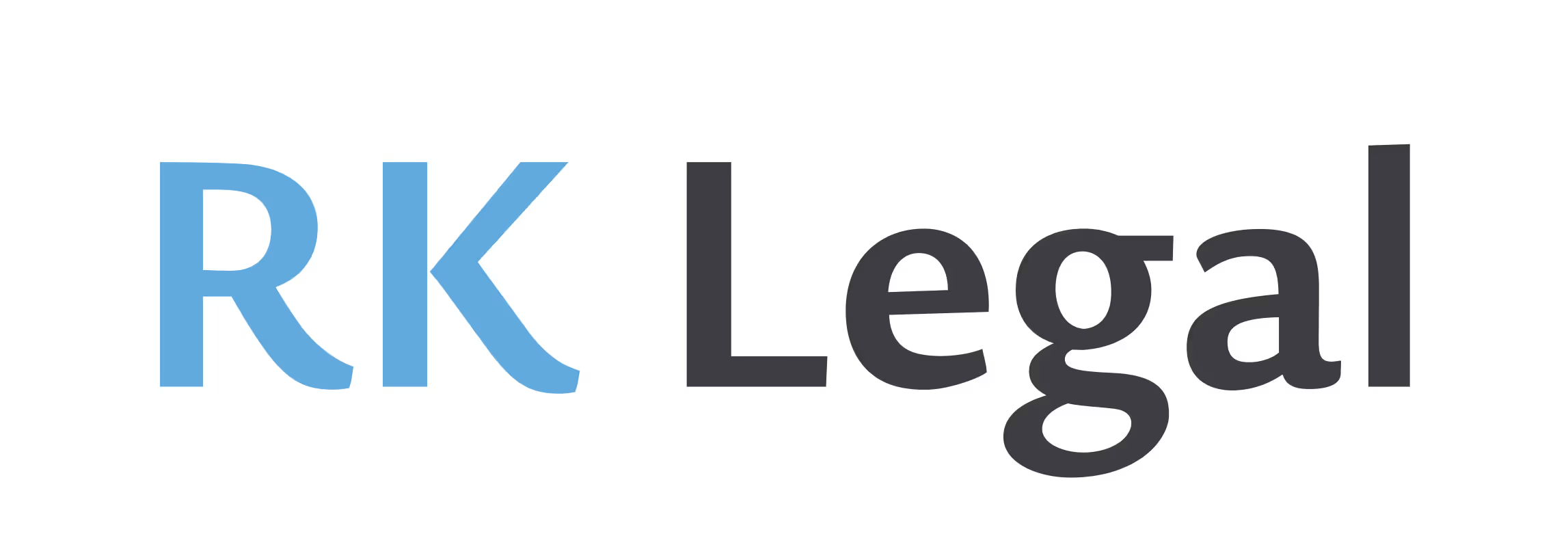Debt Collection Agency in Poland - No Win, No Fee
Your claims are handled exclusively by EULEO, our licensed local partner (firma windykacyjna) with 24+ years of expertise and 80,000+ cases handled.

Why Choose Debitura for Debt Collection in Poland

Fast, simple and risk-free debt collection in Poland
Debitura connects you with EULEO, a Krakow-based debt collection specialist (firma windykacyjna) with 24+ years of expertise and membership in PZZW, ZPF, FENCA, and ECA.
- Risk-free: Pay only when we recover your money.
- Quick setup: Submit invoices in a few clicks.
- Real-time tracking: Monitor progress live in one portal.
- Local expertise: Polish-speaking specialists handle everything.

Get started in three steps
- Upload your claim: Enter debtor details and outstanding amount via our secure dashboard.
- EULEO contacts your debtor: Professional demand (wezwanie do zaplaty) sent within 24 hours.
- Track and recover: Monitor real-time updates until payment is received.
Already using SAP, Oracle, or another ERP? Integrate via API or Zapier to automate claim submission.


Transparent, success-based pricing
Debitura operates on a No Win, No Fee model. You pay only when your money is recovered.
- Zero upfront costs: No subscription, no setup fees, no hidden charges.
- Success fee only: A percentage of the recovered amount, deducted at collection.
- Competitive rates: Tiered pricing based on claim value.
- Full transparency: No surprises - you see the fee before you start.

Fast, simple and risk-free debt collection in Poland
Debitura connects you with EULEO, a Krakow-based debt collection specialist (firma windykacyjna) with 24+ years of expertise and membership in PZZW, ZPF, FENCA, and ECA.
- Risk-free: Pay only when we recover your money.
- Quick setup: Submit invoices in a few clicks.
- Real-time tracking: Monitor progress live in one portal.
- Local expertise: Polish-speaking specialists handle everything.
The Ultimate Guide to Debt Collection in Poland (2026 Version)
Why you can trust this guide
At Debitura, we uphold the highest standards of impartiality and precision to bring you comprehensive guides on international debt collection. Our editorial team boasts over a decade of specialized experience in this domain.
Questions or feedback? Email us at contact@debitura.com — we update this guide based on your input.
Debitura By the Numbers:
- 10+ years focused on international debt collection
- 100+ local attorneys in our partner network
- $100M+ recovered for clients in the last 18 months
- 4.9/5 average rating from 621 reviews
Expert-led, locally validated
Written by Robin Tam (16 years in global B2B debt recovery). Every page is reviewed by top local attorneys to ensure legal accuracy and practical steps you can use.
Contributing local experts:
Last updated:
Welcome to "The Ultimate Guide to Debt Collection in Poland" – your premier resource for navigating the complexities of recovering debts in this jurisdiction. At Debitura, we merge our extensive local know-how with our global experience to offer unrivaled debt recovery solutions. Let us be your trusted partner in securing your financial interests in Poland.
Principal Participants in Polish Debt Recovery
Understanding the debt recovery landscape in Poland requires familiarity with its main participants: collection agencies, bailiffs, and lawyers. Each plays a unique role in navigating the process toward successful debt recovery.
Debt Collection Agencies in Poland
At the forefront of the Polish debt collection process are the debt collection agencies. These agencies primarily deal with the pre-legal phase of debt recovery, engaging directly with debtors to negotiate repayments. They operate under the Polish Act on Consumer Rights and other relevant legislation, aiming to settle debts outside the courtroom through negotiation and settlement agreements. The upcoming legislation seeks to introduce a licensing system and establish a Central Register for these agencies to promote transparency and accountability. However, for actions requiring judicial intervention, such as claims enforcement, they must collaborate with legal professionals.
Source: Prawo.pl
Lawyers in Poland
Lawyers specialize in navigating the legal complexities of debt collection in Poland, particularly in cases where disputes are intricate or involve substantial amounts. Their role encompasses preparing legal documentation, representing creditors in court proceedings, and providing strategic advice for legal enforcement actions. With expertise in Polish law, including the upcoming changes in debt collection regulations, lawyers are instrumental for creditors aiming to pursue judicial collection paths or engage in complex negotiations involving legal intricacies. Their involvement is crucial in ensuring that debt recovery actions adhere to legal standards while safeguarding the interests of creditors.
Bailiffs in Poland
Bailiffs in Poland hold a pivotal role in the enforcement of judicial decisions. They are empowered by the Polish law to execute court orders, enabling them to seize assets, garnish wages, and carry out evictions as part of the debt recovery process. The activities of bailiffs are regulated by the Act on Enforcement Proceedings in Administration, ensuring that their actions comply with legal standards. Despite their extensive power, bailiffs can only act upon receiving a valid court judgment or order, positioning them as crucial agents in the post-judicial phase of debt recovery.
Poland Debt Collection Laws and Regulations: The Legal Framework Explored
Understanding the comprehensive legal framework governing debt collection in Poland is crucial for ensuring lawful and effective practices. This framework establishes a balance between creditors' rights to debt recovery and the protection of debtors from unfair practices, making legal compliance a cornerstone of ethical debt collection.
The Civil Court System in Poland
The civil court system in Poland is integral to resolving disputes involving debt collection. It operates on a hierarchy of courts, consisting of:
- Regional Courts (Sady Rejonowe): Handle civil cases and disputes, including those related to debt collection, typically for claims below a certain threshold.
- District Courts (Sady Okregowe): Deal with more significant claims and act as appellate courts for decisions made by the Regional Courts.
- Court of Appeal (Sad Apelacyjny): Acts as the second and final appellate instance for cases adjudicated by the District Courts.
- Supreme Court (Sad Najwyzszy): The highest judicial authority in Poland, responsible for cassation appeals, ensuring consistency in the interpretation of laws.
These courts adhere to the Civil Procedure Code, which outlines proceedings for debt collection litigation, ensuring disputes are resolved fairly and efficiently.
Key Legislation Impacting Debt Collection in Poland
Several pieces of legislation govern debt collection practices in Poland, ensuring they are conducted fairly and within legal boundaries:
- Act on Consumer Rights (Ustawa o Prawach Konsumenta): Protects consumers from unfair and aggressive collection practices, setting guidelines for transparent communication.
- Civil Code (Kodeks Cywilny): Provides the legal foundation for obligations and contracts, including debt recovery procedures and the rights of both creditors and debtors.
- Personal Data Protection Act (Ustawa o Ochronie Danych Osobowych): Regulates the handling of personal data by collection agencies, ensuring debtor privacy is upheld.
- Act on Counteracting Excessive Delays in Commercial Transactions (Ustawa o przeciwdziałaniu nadmiernym opoznieniom w transakcjach handlowych): Enhances the payment discipline among businesses, impacting B2B debt recovery.
These laws ensure that debt collection practices in Poland are conducted ethically, respecting the rights of all parties involved.
Consumer Protection from Unfair Collection Practices in Poland
Consumer protection against unfair debt collection practices in Poland is fortified by a robust legal framework:
- Debt collection activities must comply with strict legal standards to protect debtors from abusive practices, such as harassment or unjustifiable charges.
- The Office of Competition and Consumer Protection (UOKiK) actively monitors debt collection agencies, imposing fines and sanctions against entities employing unfair practices.
- Proposed legislative changes aim to further regulate the debt collection industry, introducing licensing requirements for collectors and restrictions on debt collection methods to protect consumers.
Source: UOKiK.gov.pl
Overview of the Amicable Collection Process in Poland
In Poland, pre-legal debt collection involves negotiations and agreements outside of court to settle debts, typically performed by debt collection agencies. This section outlines the key practices and legal frames surrounding amicable debt recovery.
- Early Communication: Initiate with a registered demand letter to document the debt collection effort.
- Communication Regulations: Adhere to legal standards for transparent and documented exchanges.
- Collector Actions Restrictions: Reminders are allowed but harassment is a criminal offense.
- Fees and Interest Addition: Charge regulated fees and statutory interest for late payments.
- Statutory Interest Rates: As of October 4, 2023, the rate is set at 11.25% per annum.
- Essential Documentation: Efficient recovery needs signed contracts and accepted invoices.
- Payment Demand Letter: Should detail debt basis, amount due, and payment deadline.
- Negotiation Attempts: Before court, negotiation offers a chance for amicable resolution.
- Statute of Limitations: There's a limitation period after which court enforcement isn't possible.
- Transition to Judicial Recovery: If amicable efforts fail, consider judicial process escalation.
Exploring Amicable Debt Collection in Poland
Amicable debt collection in Poland leans on a strategy that puts relationships at the forefront of dues recovery, highlighting the importance of empathy and dialogue rather than direct confrontation. This approach is keen on preserving a healthy dynamic between the creditor and the debtor, seeking out resolutions that take into account the debtor's current situation while also ensuring the creditor's ability to reclaim owed funds. It advocates for a cooperative route, particularly suited for claims that are not under dispute, thereby circumventing the legal complexities and financial burdens associated with court proceedings.
It's advisable to begin with amicable debt collection except in cases where your claim is contentious or entangled in complex legal matters.
The Vital Role of Collection Agencies in Amicable Settlements in Poland
In the landscape of amicable settlements in Poland, the role of collection agencies cannot be overstated, especially for creditors who may not have the bandwidth or the specialized knowledge required for efficient debt recovery. Firms such as Debitura provide niche services that commence with the accurate identification of debts and debtors, progressing to the establishment of communication via reminders or official notices. Their neutral perspective, unencumbered by personal interests, frequently results in more effective debt resolution, thanks to their unbiased, expert negotiation.
The Benefits of Opting for Amicable Debt Resolution
Choosing amicable debt collection is advantageous for all involved parties; it enables creditors to avoid the hefty expenses associated with legal proceedings and helps in sustaining essential business relationships due to the method's considerate nature. Debtors are offered more flexible repayment arrangements, which lessen their financial burden and promote a positive outlook towards the creditor. This strategy is grounded in mutual respect and comprehension, fostering an ideal atmosphere for the settlement of financial dues.
Shifting from Amicable to Legal Debt Recovery
Although amicable debt recovery offers numerous benefits, there are occasions where legal intervention becomes a viable consideration. Triggers for moving towards legal recovery include a lack of communication, consistent non-fulfillment of financial commitments, or intentional avoidance by the debtor. Opting for legal action should be a well-contemplated final measure, due to the considerable expenses and time commitments associated with legal processes, and is generally recommended after all amicable avenues have been fully explored.
Judicial Debt Collection In Poland
This section provides insights into the judicial debt collection process in Poland, including court costs, legal timeline, court hierarchy, and more.
- Pre-litigation Efforts: Initial debt resolution attempts before legal action are crucial for successful debt recovery.
- Choosing the Right Court: Proper court selection based on claim value and complexity is pivotal in debt recovery cases.
- Execution of Court Rulings: Enforcing court decisions through bailiffs ensures debtor compliance with payment obligations.
- Court Fees: Costs for legal proceedings vary based on claim value, with fixed fees for claims up to 20,000 PLN.
- Legal Representation Costs: Regulation of legal fees in Poland with complexities determining cost levels.
- Small Claims Procedures: European Small Claims Procedure simplifies resolution for claims up to €5,000 within the EU, excluding Denmark.
- Duration of Proceedings: Factors like court workload and debtor cooperation influence the length of debt collection processes.
- Enforcement and Bailiff's Role: Bailiffs play a crucial role in enforcing court rulings and seizing debtor assets.
- Appeal Procedures: Both parties can appeal court decisions, potentially prolonging the debt recovery process.
- Recovery of Legal Costs: Debtors are often responsible for legal costs, including compensation fees for late payments.
Shifting from Amicable to Judicial Debt Collection in Poland
Transitioning from amicable to judicial debt collection in Poland is a significant step for creditors. This shift typically occurs when negotiations and amicable attempts to recover debts are unsuccessful. Triggered by persistent disputes or the pressing need for debt enforcement, creditors may find judicial avenues more persuasive. Unlike amicable methods, judicial collection requires navigating legal complexities, making legal counsel or representation not just beneficial but crucial for the successful recovery of debts.
The Importance of a Formal Judgment
Obtaining a court order or formal judgment is essential in the judicial debt collection process. It validates the creditor's claim legally, enabling enforcement actions like property seizure or wage garnishment. Acquiring a court order involves filing a lawsuit supported by comprehensive evidence and documentation of the debt. Once granted, this formal judgment serves as a robust mechanism to enforce debt recovery, underscoring its importance in resolving financial disputes.
Determining the Appropriate Court for Your Claim
The choice of court for a debt recovery case in Poland hinges on factors such as claim size and complexity. Thresholds and guidelines help delineate which court is suitable, with claims exceeding PLN 75,000 typically reserved for regional courts. Distinctions in jurisdiction underscore the importance of understanding legal landscapes, ensuring cases are filed in the correct venue for efficient resolution.
Small Claims Court in Poland
Poland's small claims court is an expedient avenue for resolving lower-value disputes, particularly relevant for cross-border cases within the EU, under the European Small Claims Procedure. Designed for claims up to €5,000, excluding costs, this procedure simplifies litigation, often obviating the need for legal representation. It's an efficient, cost-effective option, particularly advantageous for small-to-medium enterprises and individual creditors seeking swift debt recovery solutions.
Ordinary Proceedings in Poland
For cases that exceed the small claims threshold or involve more complex legal questions, ordinary proceedings in Poland provide a more formal litigation path. These comprehensive proceedings require thorough preparation, including detailed claim documentation and, frequently, legal representation. Though more time-consuming and potentially costlier, ordinary proceedings offer a structured approach to resolving significant financial disputes, embodying the judicial system's adaptability to a wide range of cases.
At Debitura, we leverage our extensive experience to guide creditors through Poland's intricate debt collection process, ensuring informed decisions every step of the way. Whether it’s navigating small claims or orchestrating complex litigation, our expertise supports successful debt recovery endeavors across Poland.
Debt Enforcement in Poland
Debt enforcement is a critical step in debt recovery, providing a legal framework to secure payments. This section outlines the process and its importance in Poland.
- Court Order: A court order is mandatory for debt enforcement in Poland.
- Bailiff's Role: Bailiffs enforce debts, requiring a valid execution title for initiation.
- Execution Title: A court judgment, settlement, or notarial deed with enforcement clause is needed.
- Execution Methods: Seizure of property, garnishing wages, and bank accounts are key methods.
- Debtor Protections: Certain personal items and income levels are protected from seizure.
- Costs: Debtors bear the costs of execution, including bailiff fees.
- Bailiff Regulations: The "Act on Bailiffs" governs bailiff operations and activities in Poland.
- Financial Considerations for Creditors: Weighing ROI, including court and bailiff fees, is vital.
- Asset Tracing: Economic intelligence is key to identifying hidden debtor assets.
- Timeframe: Debt enforcement duration varies, influenced by case complexity and enforcement efficiency.
- Asset Seizure: Polish law regulates the seizure of assets, protecting certain debtor rights.
- Salary Attachments: Governed by legal limits, ensuring debtors maintain a basic living standard.
The Role of Bailiffs in Debt Enforcement
Based on the intricacies of Polish law, bailiffs serve as critical figures in the debt enforcement process, bridging the divide between legal judgment and actual debt recovery. Their wide-ranging responsibilities and powers are outlined carefully to balance debtor protections with creditor rights.
- Asset Seizure: Bailiffs are authorized to seize both movable and immovable assets of the debtor, including but not limited to bank accounts, salaries, and properties. These actions are designed to satisfy the debt owed to creditors.
- Debtor Interaction: The bailiff’s role extends beyond mere asset seizure; they also act as avenues for communication, conveying demands for payment directly to debtors.
- Conducting Auctions: To liquidate seized assets and recover owed amounts, bailiffs also oversee the auction process.
- Debtor Protections: Despite their authoritative functions, bailiffs must respect debtor rights, ensuring essential living needs are not compromised. For instance, certain personal belongings and minimum income levels are protected against seizure.
- Regulatory Compliance: Operating under strict regulations, bailiffs must balance assertive debt recovery with ethical standards, ensuring fair treatment for all involved parties.
The Process of Debt Enforcement
To initiate the debt enforcement process in Poland, several steps are meticulously followed, ensuring the rights of all parties are upheld within a comprehensive legal framework.
- Obtaining Execution Title: The process begins with securing a valid execution title; this can be a court judgment, settlement, or a notarial deed with an enforcement clause.
- Application Submission: With an execution title in hand, creditors apply for execution with a court-appointed bailiff, marking the formal start of the execution process. Asset Evaluation: The bailiff then assesses the debtor's assets, identifying viable targets for recovery.
- Execution of Assets: The bailiff may seize assets, garnish wages, or employ other methods to satisfy the debt, adhering to legal protections for the debtor.
- Resolution: The process concludes with the successful recovery of debt or a legal determination that the debtor’s assets are insufficient.
Legal Framework for Bailiff Operations and Debt Enforcement
Poland's legal system prescribes a rigid framework governing bailiff operations and the entirety of the debt enforcement process, ensuring transparency, fairness, and efficiency. This framework comprises several laws and regulations aimed at protecting the interests of all parties.
- Bailiff Regulations: Laws such as the "Act on Bailiffs" delineate the oversight and operational procedures for bailiffs, fortifying their role within the legal system. Protection of Debtors: Polish law ensures the protection of debtors during the execution process, forbidding the seizure of essential living needs and income below a subsistence level.
- Legal Dispute Resolution: In instances of discrepancies or disputes concerning the execution process, parties can seek redress through the courts, fostering an environment of legal recourse and fairness.
Pre-Enforcement Actions
Preparing for debt enforcement in Poland requires a systematic approach, ensuring all legal avenues are explored before commencing enforcement actions. These preparatory steps serve as the groundwork for smooth and effective debt recovery.
- Voluntary Settlement Attempts: Prior to legal action, efforts are made to amicably settle the debt, saving both time and resources.
- Legal Action Decision: If voluntary repayment fails, legal consultation determines the viability of proceeding with enforcement, taking into account the debtor's financial status and assets.
- Lawsuit Preparation: Crucial documents are prepared, and evidence of the debt compiled, ahead of filing a lawsuit.
- Court Proceedings: The process transitions to the courts, awaiting a judgment that could lead to the issuance of an execution title.
With a structured and informed approach, guided by Debitura’s decade-long expertise in Poland, creditors can navigate the complexities of debt enforcement, optimizing their recovery strategies while adhering to local legal standards.
Insolvency Proceedings in Poland: A Creditor's Guide
Insolvency and bankruptcy in Poland are crucial mechanisms for debt recovery, offering structured legal pathways for creditors. This section outlines key considerations and strategies for effectively navigating insolvency proceedings.
- Legal Framework: Governed by the Bankruptcy Law Act of February 28, 2003, offering structured debt recovery paths.
- Debt Recovery Tool: Utilized strategically for recovering debts, with recent legal changes increasing accessibility.
- Filing Conditions: Applicable for entities unable to meet obligations for over three months, demonstrating insolvency.
- Priority Rules: Clearly defined, determining the order of claim satisfaction and affecting debt recovery chances.
- Bankruptcy Costs: Involves court fees, legal representation costs, and trustee remuneration, vary based on case complexity.
- Timeframe Constraints: Varying duration influenced by the debtor's financial situation and procedural complexities.
- Recovery Prospects: While full satisfaction is rare, structured distribution plans aim to facilitate some level of repayment.
- Petition Process: Involves submitting a formal petition followed by a court hearing to assess insolvency.
- Secured vs. Unsecured: Distinct privileges exist, with secured creditors generally granted precedence in claim recovery.
- Post-Bankruptcy Scenarios: Options for creditors to maximize recovery include active participation and prompt claim filing.
- Required Documentation: Submission of documented claims is essential for participation in the distribution plan.
- Judicial Review: Creditors possess rights for objection, appeal, and impacting the bankruptcy proceedings.
The Legal Framework for Insolvency Procedures
The Bankruptcy Law Act of February 28, 2003, governs insolvency procedures in Poland, covering both individual and business entities. It's designed to orderly distribute the debtor's assets among creditors and, where possible, rehabilitate financially distressed businesses.
- Types of Proceedings: Insolvency can lead to liquidation (bankruptcy) or restructuring based on the debtor's condition and prospects for recovery.
- Thresholds: Insolvency is declared when a debtor fails to meet due obligations for more than three months or when liabilities exceed assets.
- Creditor Initiatives: Creditors can instigate insolvency proceedings by proving the debtor's insolvency, potentially using it as a strategy for debt recovery.
Creditor's Rights and Priorities in Insolvency Proceedings
In insolvency proceedings, the prioritization of claims is critical to the recovery process for creditors.
- Secured vs. Unsecured Creditors: Secured creditors have claims satisfied first from the sale of collateral, while unsecured creditors are paid from remaining assets.
- Claim Registration: Creditors must timely register their claims to participate in the distribution of the insolvency estate.
- Priority Order: Claims are ranked with wages, taxes, and secured debts being satisfied first.
Strategies such as claim enforcement and active participation in proceedings can maximize recovery chances.
Maximizing Recovery from Insolvent Estates
Efficacious strategies in debt recovery through insolvency include:
- Early identification of insolvency signs in debtors and prompt claim filing.
- Securing assets or obtaining guarantees before formal insolvency proceedings.
- Active involvement in the insolvency process, including attending creditors’ meetings.
The Cost and Duration of Insolvency Proceedings
The insolvency process involves various fees and takes time, affecting the overall recovery for creditors.
- Costs: Includes court fees, trustee remuneration, and attorney fees. Court filing fees start at 30 PLN for individuals and 1000 PLN for businesses.
- Duration: The length of proceedings can vary, typically spanning from a few months to several years, depending on the complexity.
- State Treasury Support: For insolvent debtors without sufficient assets, costs are temporarily covered by the State Treasury.
Efficient management and participation in proceedings can mitigate some of these costs and time delays for creditors.
Source: LEX - Bankruptcy Law Act
Find a Local Debt Collection Lawyer
Need court-ready representation? Share your case once and receive up to three proposals from vetted litigation attorneys—free, fast, and with no commitment.
- Verified specialists
- Quotes in 24 h, no hidden fees
- Fair, pre-negotiated rates

FGGK is a premier law firm in Warszawa offering effective Debt Collection services in Poland, positioning itself as the go-to partner for debt recovery with over 15 years of experience, serving clients across Europe and Asia, and recognized by Orły Prawa.

BRILLAW Kancelaria Radców Prawnych Mikulski & Partners is a premier law firm in Warsaw offering effective Debt Collection services in Poland, positioning itself as the go-to partner for debt recovery since 2000, with accolades and memberships enhancing its trusted reputation.
.avif)
Kancelaria Adwokacka Adwokat Dawid Suszyński is a premier law firm in Gdańsk offering effective Debt Collection services in Poland, established in 2017, and recognized by Orły Prawa, serving both domestic and international clients with trusted expertise.

Kancelaria Adwokacka Maciej Bartnik is a premier law firm in Kraków offering effective Debt Collection services in Poland, established in 2008, providing full service in English with offices in Kraków and Warsaw, specializing in legal assistance for foreigners.

Tomasz Staszak Kancelaria Adwokacka is a premier law firm in Kraków offering effective Debt Collection services in Poland, positioning itself as the go-to partner for debt recovery since 2016, with a reputation for excellence and comprehensive legal expertise.

Kancelaria Radcy Prawnego Maciej Mierecki is a premier law firm in Kraków offering effective debt collection services in Poland, renowned for cross-border expertise and honored with multiple Orły Prawa awards; established in 2021 and a member of the District Chamber of Legal Advisers.

ICG Sc is a premier debt recovery agency in Glogow offering effective Debt Collection services in Poland, recognized for its 20 years of experience, no-win-no-fee pricing, and operations in over 50 countries, with accolades like the Expert’s Laurel.

RK Legal is a premier law firm in Warsaw offering effective Debt Collection services in Poland, positioning itself as the go-to partner for debt recovery with a foundation in 2006, membership in Euro Collect Net Lawyers, and expertise in both B2C and B2B debts.

Europejskie Biuro Ochrony Finansów Sp. z o.o. Sp. K. (EBOF) is a premier debt recovery agency in Poland offering effective risk-free debt collection services; founded in 2012, the agency is an exclusive Debitura partner, providing No Cure No Pay solutions based on Debitura's standard terms, and is recognized for accolades such as Brylant Polskiej Gospodarki and memberships in leading financial associations.

EULEO is a premier debt recovery agency in Poland offering effective risk-free Debt Collection services, positioning itself as the go-to partner for debt recovery since 2001 with a success-fee model, multiple accolades, and international reach; EULEO is an exclusive Debitura partner in Poland, offering No Cure No Pay debt collection based on Debitura's risk-free standard terms and pricing.





.svg)

.webp)
.png)

.png)
.svg)












.svg)

